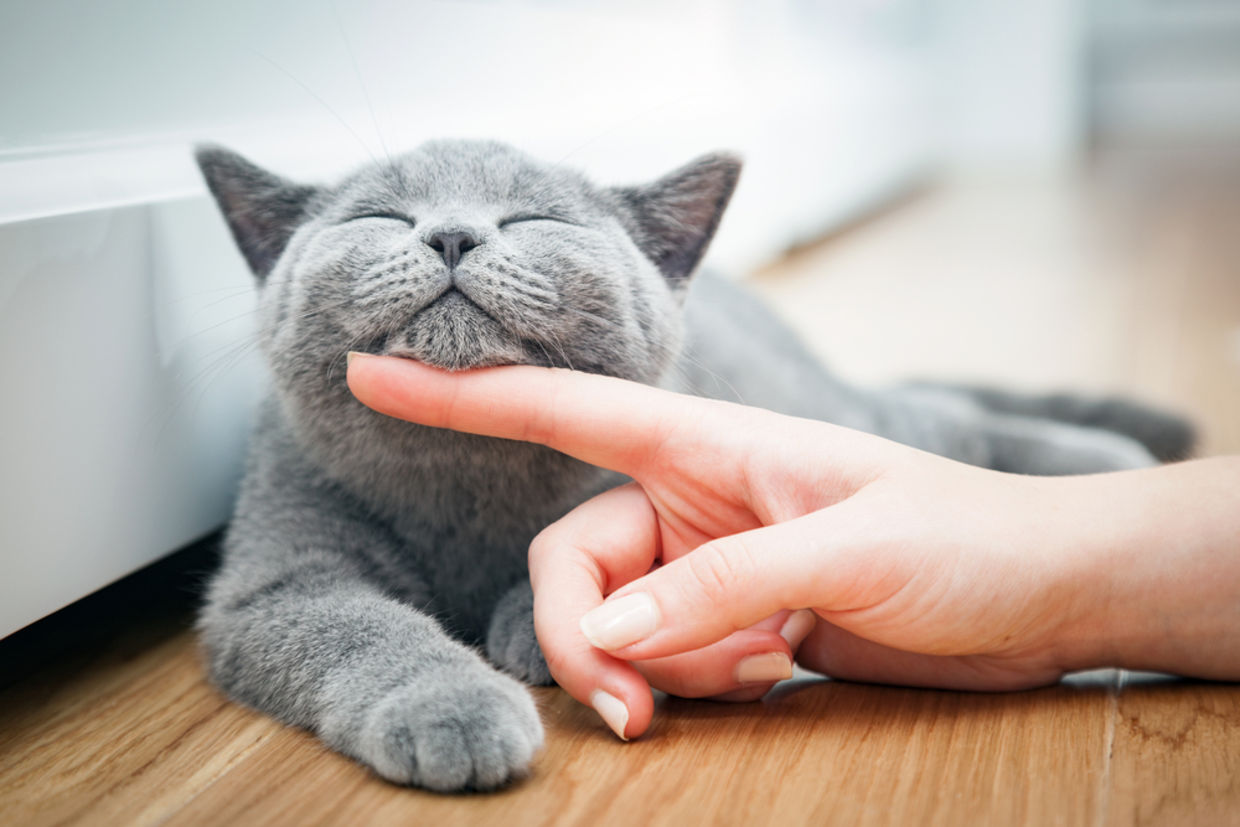Owning a cat can bring unconditional love and companionship to your life. Having a feline friend can also help to relieve stress and improve your heart health.

Owning a cat can be an extremely rewarding relationship. A cat has the ability to both calm your nervous system and provide an immediate outlet for fun and play. Although cats are independent animals who like to scavenge and explore on their own terms, they are also very affectionate with their owners and people they trust.
Most cats love to curl up in your lap at the end of a long day while you watch television or read a book. The simplicity of this act can cause an automatic release of all the right kinds of chemicals to your brain, allowing you to ease into the evening without the weight of the world on your shoulders. Any cat owner will tell you just how much their furry friend helps them to relax and unwind. While many people enjoy the company of dogs, a cat can be more of an acquired taste—but once acquired, it’s a hard taste to lose.
Why cats make great pets
The versatility of cat ownership is one reason why so many people enjoy feline companionship. Cats make great pets whether you live in a big house or tiny apartment, and they provide all the fun and play of larger animal companions. If you’re thinking of owning a cat, these are some of the key benefits:
- Cats are low maintenance. Maybe cats’ most alluring quality is that they are lower maintenance and cost less than dogs, who need walking, training, frequent grooming, and more toys and attention. Cats are also perfect for apartments or city living. They don’t need tons of space to play and explore—nosing their way through the nooks and crannies of your kitchen will keep them occupied for hours.
- They’re quiet. Cats tend to meow when they’re hungry, but you rarely have to worry about being woken up or distracted from a task by a cat begging for attention. This makes them an ideal pet if you’re working from home or have youngsters napping during the day, for example.
- They’re independent. A cat will be there for you when you need them but they’re also perfectly adept at entertaining themselves. Most don’t need—or want—constant attention and you’ll never have to endure guilt-inducing puppy eyes from a cat.
- They keep your house pest-free. You probably already know that cats like to hunt rodents. But they’re also natural insect killers, too, offering the kind of household protection that Venus flytraps promise but rarely deliver. Many cats thoroughly enjoy exterminating bugs such as house flies and spiders, almost like they’re being paid for it.
- They have long life spans. The most difficult stage of pet ownership is parting with your beloved companion. While you’re still likely to outlive a cat, their longer lifespans mean you’ll get to have more time with them—up to 20 years, in fact.
The health benefits of cats
While owning any pet can provide a myriad of health benefits, there are some benefits that are specific to cats. They can:
- Lower stress and anxiety. Cat owners know how one session of petting or playing with their cat can turn a bad day into a good one. Scientific evidence also shows that a cat’s purr can calm your nervous system and lower your blood pressure.
- Improve your cardiovascular health. Cat owners have been reported to carry a lower risk for heart disease and stroke.
- Prevent allergies. You always hear about cat hair being one of the most common allergens. However, if a child is exposed to cats within the first few years of life, they are more likely to develop an immune system that combats not only cat allergies but other kinds of allergens as well.
- Reduce feelings of loneliness. Cats make great companion animals. They offer an unconditional love that can be equal to (or sometimes even greater than) many human friends and confidants.
Having fun with your cat
One of the great benefits of owning a cat is that you don’t need much space to play and have fun together. Unlike large animals who need plenty of space to play fetch or run around, all you need with a cat is your living room and a little imagination. Beyond a ball of yarn, there are plenty of other ways to entertain and bond with a cat.
- Play hide and seek. An old childhood sleepover favorite can now become you and your fluff ball’s favorite pastime. Just hide a toy or an object that interests them under a blanket, and watch your cat scavenge.
- Blow bubbles. One of the greatest joys of cat ownership is their never waning interest in the ordinary. Blowing bubbles might seem like an activity you left back in the schoolyard, but your cat will be so taken with the floating balls of mystery, it could reignite your interest. Cats love to try to catch and pop the bubbles, just be sure to ALWAYS use a non-toxic bubble solution.
- Set up a food treasure hunt. Cats love the excitement of a challenge that keeps their minds sharp—and their stomachs full! Place treats in hard-to-reach spots in your home and watch as your cat works to retrieve them. Cats are so agile you even can set up obstacles for them to navigate. It might even inspire you to be more active!
- Use an app. iPhone and Android applications offer games to keep your cat entertained, including catching fish or bugs as they appear on screen. See the Get more help section below for more information.
How to care for your cat
Although cats are more independent than many other pets, owning one is still a major commitment. They need a devoted owner to keep them as happy and healthy as possible. Cats need:
- A fresh litter box. Most house cats are indoor cats, which means you will need a litter box. A litter box is convenient, but needs to be cleaned every day to avoid unpleasant odors. Pet stores offer litter formulas that make it easy to scoop out waste and control the smell.
- Consistent grooming. Although a cat might not need the same amount of grooming as a dog, it still takes work to prevent your house turning into one big hairball. A weekly cleaning is usually enough, and you can find easy-to-use cat grooming tools at most pet stores.
- A scratch pole. Many cats have a tendency to scratch and paw at drapes, furniture, and just about anything else that takes their fancy. Investing in a scratch pole or post will not only provide your cat with the scratching outlet they need, but also save you lots of money and frustration.
- A well-balanced diet. Work with your vet to ensure your feline is getting a nutritional diet. Avoid overfeeding that can lead to obesity and other serious health issues. Also, be sure to keep their food and water bowls far away from their litter box to prevent any risk of contamination.
- A safe environment. Cats are small, delicate animals that do well living mostly indoors. Although many cats love to roam free outside, other predatory animals and traffic, for example, can threaten their safety. Always monitor your cat’s whereabouts and keep an ID tag on its collar. Having your pet microchipped will allow shelters and veterinarians to easily identify you as the owner should your cat get lost.
Tips to manage cat allergies
You might be interested in adding a cat to your family but the only thing holding you back is a runny nose and watery eyes. Although it’s true that cats can trigger allergies, it might not instantly rule you out of owning a cat. Most allergies are caused by the animal’s dander and some breeds generate much more than others. If you suffer from allergies, it’s a good idea to spend time with different cats before adopting or buying. And if a friend or partner already owns a cat, there are still plenty of things you can do to help manage your allergy.
- Restrict certain rooms in the house. If you suffer from a cat allergy, you may want to keep the cat out of your bedroom and restrict them to only a few rooms in the house, for example.
- Wash your hands. After handling or petting your cat, be sure to wash your hands with soap and water before you touch your face or rub your eyes.
- Use air purifiers. Air purifiers fight against cat allergies as well as other allergens that might be lingering in the air, such as dust mites. Using one may help you to live a healthy and happy life with your cat.
- Be consistent about bathing. Giving your cat a bath can reduce dander, while also keeping your cat sleek and clean.
- Use antihistamines. Consult your doctor or local pharmacist about the best antihistamine for your cat allergy. Common symptoms such as a runny nose can often be treated with oral medication, while puffy, watery eyes can frequently be treated with eye drops.
How to choose the cat that’s best for you
Do your research first, and then choose your cat from a reputable breeder, shelter, or rescue group. Things to keep in mind while looking into adoption are:
- Kitten or an adult? Kittens are able to adapt quickly to their surroundings, but will need house training and much more attention than an adult cat. An older cat might be a wise choice if you have a strict work schedule and don’t have time to fully care for a kitten. On the other hand, an older cat may have health problems, which will require more visits to the vet.
- Shedding concerns. Some cats shed more than others. For example, an American Bobtail or Cymric cat will shed much more than a Siamese cat.
- Health concerns. A healthy kitten or cat will have bright eyes and a shiny fur coat. Cat’s that appear thin or overweight or have a nasal discharge may have health problems.
- Personality and disposition. Just like people, cats can vary in their personality and character traits. Look for one that seems to be a good fit with you and your lifestyle. If you’re hoping for lots of petting and stroking, for example, you may want to look for a cat that actively seeks attention from its handlers, rather than one that hisses or scratches. If you think you’ve found the right cat, try to make more than one visit with the animal if that’s possible.









